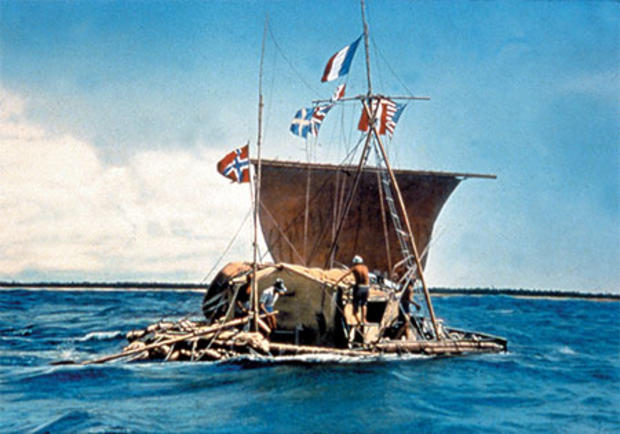Kon-Tiki: An Ancient Technology to Prove a Modern Point (Pictures)
On April 28, 1947 Thor Heyerdahl and his crew of five set sail from Peru on a balsa-wood raft on a remarkable 4,100 mile journey across the Pacific Ocean. The Swedish explorer and researcher was trying to prove his theory that ancient South American seafarers could have used the ocean's currents to drift west and reach - and later populate - the islands of the South Pacific.
During his first visit to Polynesia in 1937, Heyerdahl had noticed a connection between the local flora and fauna and the prevailing western winds and ocean currents. That later led him to question the conventional theories about how Polynesia had been settled. A decade later, he would test whether ancient Incas, using the technology of their era, could have successfully navigated their way to the islands of the Pacific.
It was an audacious attempt. The 40-foot raft was built from nine 2-foot-thick balsa wood logs. The design was borrowed from models of Indian rafts and Heyerdahl's team only used materials that existed during pre-Colombian times. Once it set sail, the Kon-Tik found itself propelled by the Humboldt current, and the explorers were able to live off the abundant food supply offered by the ocean's waters. This was a daring and dangerous trip and the crew struggled with strong winds and at least a couple of storms that threatened to capsize the raft. But on August 7, 1947, the Kon-Tiki finished its journey just off the coast of Tahiti.
Heyerdahl had proved his point: It could be done. But that still did not convince most scientists. It is - and remains - a controversial theory. However, there was nothing unambiguous about the public's reaction to Kon-Tiki's crossing: The film recounting the journey won two Oscars in 1951 while Heyerdahl's book recounting his adventure became a best-seller and was translated into 70 languages. (For more about Heyerdahl's life, see Oslo's Kon-Tiki Museum)

